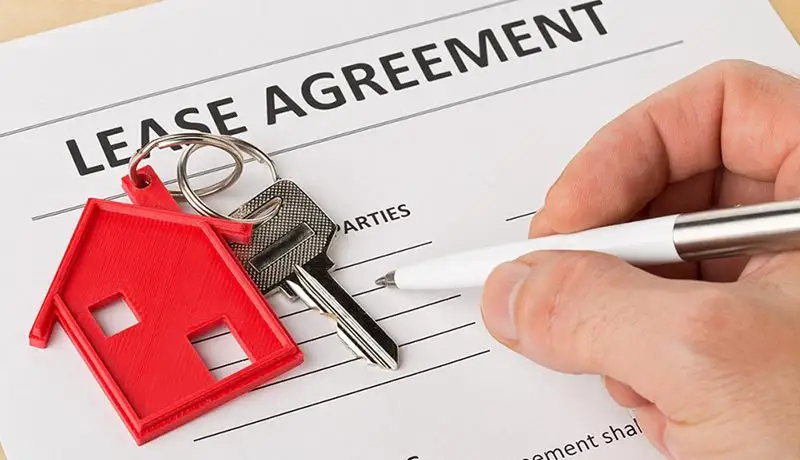Property Leasehold in Thailand. In Thailand, leasehold property arrangements are a practical solution for foreigners seeking secure, long-term rights to land or real estate. Given that Thai law restricts direct foreign ownership of land, leaseholds offer a legally viable way to use and control property for residential or commercial purposes. Here’s an in-depth look at the leasehold structure, legal requirements, and practical considerations.
1. Legal Framework
- Lease Term Duration:
- The maximum lease period is 30 years, as defined by Thai law.
- Extensions for additional 30-year terms can be included in the agreement, but such renewal clauses are contractual and not legally enforceable against the landowner’s will.
- Registration Requirements:
- Leases exceeding three years must be registered at the local Land Office.
- Registration fees, typically split between the lessor and lessee, are calculated as 1% of the total lease value.
- Lessee Rights:
- Use of the property for the agreed term, including subleasing or transferring the lease (if stipulated).
- No ownership rights to the land or significant control over the property beyond the lease terms.
- Lessor Obligations:
- The lessor remains the legal owner and is obligated to honor the terms of the registered lease.
2. Key Elements of a Lease Agreement
- Details of the Parties:
- Full identification of the lessor (property owner) and the lessee.
- Property Description:
- Detailed information about the property, including its boundaries, condition, and title deed reference.
- Payment Terms:
- Total lease payment, annual rental fees, and any applicable deposits must be clearly outlined.
- Renewal Options:
- While renewal terms can be included, enforceability depends on the goodwill of the lessor at the time of renewal.
- Transferability and Sublease Provisions:
- The agreement should specify whether the lessee can sublet or transfer the lease.
- Termination Clauses:
- Clear stipulations for early termination, breach of contract, or unforeseen circumstances.
3. Practical Uses of Leasehold in Thailand
- Residential Property:
- Foreigners often use leaseholds for villas, houses, or condominiums in popular tourist or expat areas like Bangkok, Phuket, and Chiang Mai.
- Commercial Ventures:
- Leaseholds are common for retail, hospitality, and office spaces, allowing businesses to establish operations without land ownership.
- Industrial Leasing:
- Factories and industrial facilities often operate on leased land, particularly in government-designated zones.
4. Advantages of Leasehold Agreements
- Legal Security for Foreigners:
- Leaseholds provide a legitimate way for foreigners to access property while adhering to ownership restrictions.
- Cost Efficiency:
- Leasehold arrangements often require less upfront capital than freehold ownership structures.
- Flexibility:
- Suitable for short to medium-term needs, especially for expats or businesses requiring operational space.
5. Limitations and Risks
- Renewal Uncertainty:
- Renewal terms may not be honored by the lessor, leaving the lessee at risk when the lease expires.
- Ownership Restrictions:
- Lessees cannot mortgage or use the property as collateral, limiting financial leverage.
- Reversion of Improvements:
- Any structures or enhancements made by the lessee typically revert to the lessor at the end of the lease term unless otherwise specified.
- Diminishing Value:
- The resale value of a lease decreases as the term shortens, reducing long-term investment potential.
6. Important Considerations for Lessees
- Due Diligence:
- Verify the lessor’s legal ownership of the property by conducting a title deed check at the Land Office.
- Legal Representation:
- Engage a qualified Thai lawyer to draft or review the lease agreement, ensuring compliance with Thai property laws.
- Registration of Lease:
- Always register leases exceeding three years to secure enforceability and protect your rights.
- Negotiation of Terms:
- Include clear provisions for renewal, transfer rights, and compensation for improvements to minimize risks.
7. Leasehold vs. Freehold
While leasehold agreements provide an accessible option for foreigners, they lack the permanence of freehold ownership. Foreigners can own condominium units outright under Thailand’s Condominium Act but must rely on leaseholds or partnerships for land access.
Conclusion
Leasehold property arrangements in Thailand offer a practical and legal means for foreigners to enjoy access to land and real estate. While they come with limitations, careful negotiation, legal oversight, and compliance with Thai regulations can help lessees maximize the benefits of this arrangement. Understanding the rights, obligations, and risks associated with leaseholds is key to making informed property decisions in Thailand.

